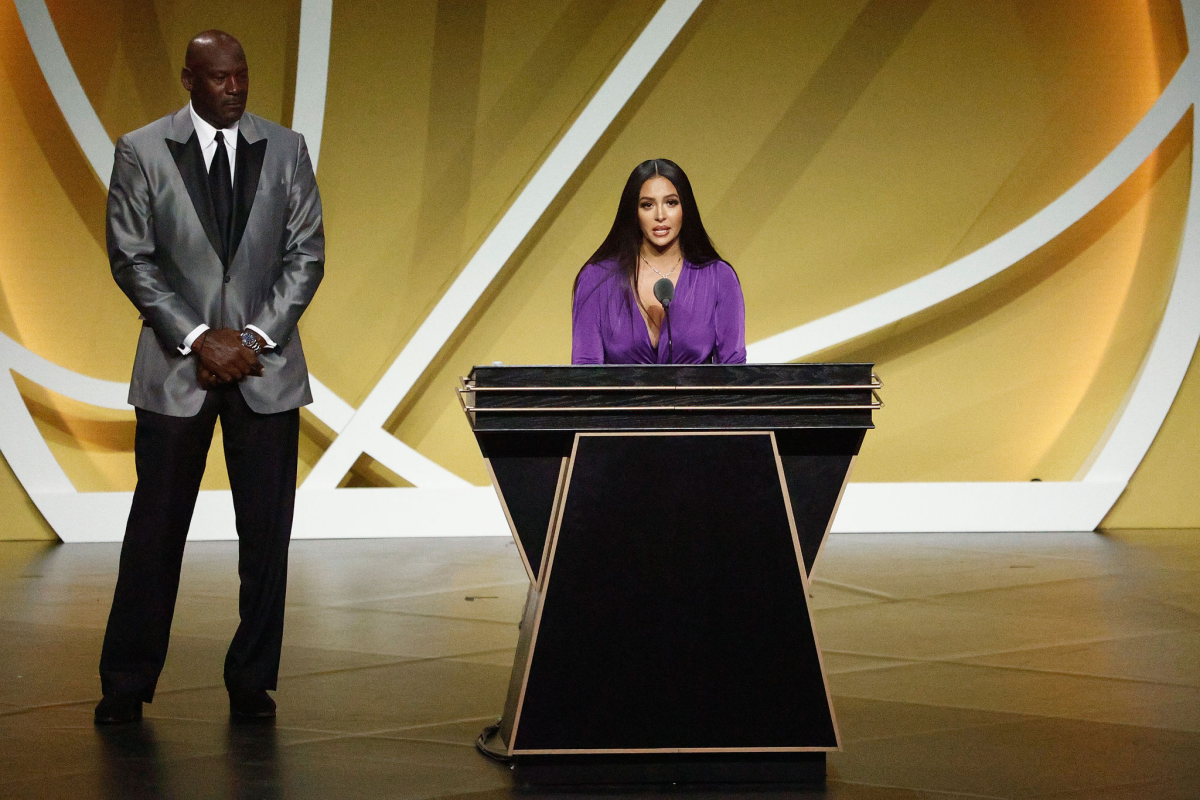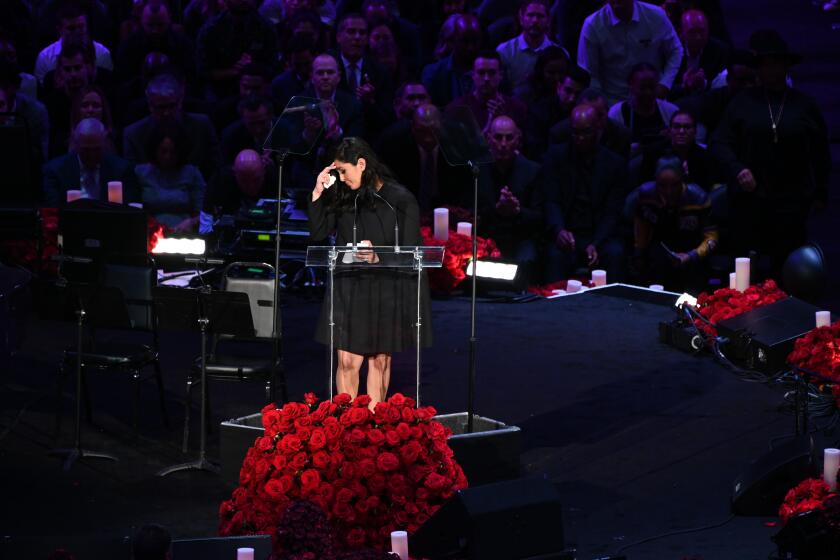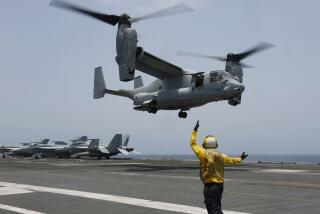Vanessa Bryant, others settle lawsuit with helicopter firm in Kobe Bryant crash

- Share via
Vanessa Bryant and others settled wrongful death lawsuits Tuesday against the company that operated the helicopter that crashed in January 2020, killing Kobe Bryant, his daughter and seven others.
Attorneys for the families, the helicopter company and insurers filed “joint notice of settlement and joint request to vacate discovery deadlines” documents with the court on Tuesday.
The terms of the settlement remain confidential. “Plaintiffs and Defendants jointly report that they have agreed to settle their claims in the above-entitled action,” according to the court filing by Gary Robb, one of the nation’s top litigators on helicopter disasters and attorneys at Munger, Tolles & Olson.
Vanessa Bryant, Kobe’s widow, filed suit against Fillmore-based Island Express Holding Corp. and Island Express Helicopters. The suit alleged that pilot Ara Zobayan, who also died in the crash in Calabasas, failed “to use ordinary care in piloting the subject aircraft” and was negligent during the Jan. 26, 2020, crash.
The settlement also resolves the suit by the surviving family members of John Altobelli, his wife, Keri, and their basketball-playing daughter Alyssa; mother and daughter Sarah and Payton Chester; as well as Mamba Academy basketball coach Christina Mauser. The documents filed by Vanessa Bryant’s legal team indicate the other families were also part of the settlement.
In February, the National Transportation Safety Board determined the cause of the crash was Zobayan’s decision to fly under visual flight rules in cloudy conditions, which resulted in his spatial disorientation and loss of control of the aircraft. The board added that Zobayan’s “likely” self-induced pressure to get Bryant to his destination and inadequate review of safety management procedures by helicopter operator Island Express contributed to the crash. Flying under visual flight rules through cloud cover was “legally prohibited,” yet Zobayan “continued his flight into clouds,” NTSB Chairman Robert Sumwalt said.
Zobayan, the NTSB said, made a “poor decision” to fly at excessive speed in bad weather, and the helicopter was not in a controlled flight pattern when it crashed into a hillside at 9:45 a.m.
Bryant alleged that “Island Express Helicopters authorized, directed and/or permitted a flight with full knowledge that the subject helicopter was flying into unsafe weather conditions.”
In a two-hour event filled with basketball royalty, entertainment icons, and 35,000 roses, it was the simple words of Vanessa Bryant that captured the moment.
Kobe Bryant, the complaint alleges, died “as a direct result of the negligent conduct of Zobayan,” for which “the company is vicariously liable in all respects.” The 27-count complaint, which also names Zobayan’s estate as a defendant, seeks compensatory and punitive damages. The amount isn’t specified.
While flying to a youth basketball game at Bryant’s Mamba Sports Academy in Thousand Oaks on Jan. 26, 2020, the 1991 Sikorsky S-76B crashed into the hillside near Las Virgenes Road and Willow Glen Street amid dense fog.
NTSB investigator Bill English said in February that Zobayan informed air traffic control that he was “climbing to 4,000 feet” to get above the clouds. But English said the pilot was experiencing spatial disorientation because the helicopter banked to the left, away from the 101 Freeway, while communicating with the controller that it had descended.
The lawsuit accused Zobayan, Bryant’s longtime pilot, of several acts of negligence, including failing to abort the flight, monitoring and assessing the weather, and failing to keep a safe distance between natural obstacles and the helicopter.
The Federal Aviation Administration cited Zobayan in 2015 for violating visual flight rule minimums, and the FAA operating certificate for Island Express limited its pilots to fly under visual flight rules, not conditions that necessitate the use of instruments.
“On information and belief, Defendant Island Express Helicopters employed Defendant Zobayan with conscious disregard of the rights or safety of others and authorized or ratified his wrong conduct, and itself engaged in conduct with malice, oppression, or fraud,” the complaint charged.
The lawsuit alleges that the company did not provide “adequate training and/or supervision” after the FAA citation “to ensure the negligent action did not re-occur” and that it “promoted and engaged in unnecessary and needlessly risky means of transport under the circumstances.” The complaint also faults the company for not having “an adequate safety policy for canceling flights into known unsafe weather conditions.”
Another section of the lawsuit accuses Island Express of negligence for not installing a terrain alarm system in the helicopter. The system could have warned Zobayan he was nearing a hillside. Federal regulations didn’t require the helicopter to have the system.
More to Read
Sign up for Essential California
The most important California stories and recommendations in your inbox every morning.
You may occasionally receive promotional content from the Los Angeles Times.












